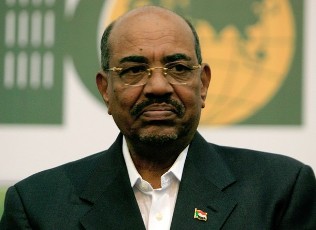Bashir is ‘leading political change’ in Sudan, says minister
April 18, 2013 (KHARTOUM) – The Sudanese Investment Minister Mustafa Osman Ismail said that President Omer Hassan al-Bashir is personally leading the process of political change in the country by pushing younger generations into leadership positions.
 In an interview with Doha-based Al-Sharq newspaper, Ismail noted Bashir’s assertions last month to the same daily that he will not run for re-election in 2015 when his term expires in order to bring about “new blood”.
In an interview with Doha-based Al-Sharq newspaper, Ismail noted Bashir’s assertions last month to the same daily that he will not run for re-election in 2015 when his term expires in order to bring about “new blood”.
Ismail also acknowledged problems within the ruling National Congress Party (NCP) which he argued was causing a decline in its popularity among Sudanese people.
The NCP figure warned that the party needs to develop new policies to replace current ones used over the last two decades but expressed confidence of its capability to do so.
There are growing signs of divisions within the NCP amid complaints by the party’s base of stagnation in the party’s leadership pointing to many officials who remained in their positions for decades.
Last November, authorities said they thwarted a coup attempt planned by pro-regime figures in the military and security apparatus.
In unusual statements, Ismail said that the opposition National Umma Party (NUP), led by former Prime minister al-Sadiq al-Mahdi, has a shot at replacing the NCP in power. He described the NUP as a “strong party”.
Al-Mahdi, a descendant of the self-proclaimed Mahdi who fought the British in the 19th century, was overthrown by Sudan’s Bashir in the 1989 coup.
The NUP chief, Sudan’s last democratically elected leader, was one of the main presidential candidates in the 2010 elections against Bashir before his party withdrew citing fraud.
The minister expressed his party’s willingness to work in the ranks of the opposition if people chose vote it out of power in 2015.
Ismail called on all armed movements in Darfur to return to peace and work under the umbrella of the recent Doha peace agreement signed with a faction of the Justice and Equality Movement (JEM).
He praised the role of Qatar in achieving stability and peace in Darfur and throughout Sudan adding that he was optimistic about the future of Darfur in light of the International Donors’ Conference concluded in Doha this month.
Ismail emphasized that Darfur would never secede from Sudan because the factors that caused the separation of the south in July 2011 and its transformation into an independent state is not present in Darfur by virtue of the ethnic, cultural, religious and linguistic composition of Sudan’s western region.
He also said that his country does not fear attempts of Israeli interference given the lack of common borders.
The Sudanese official also warned South Sudan not to use its relationship with the Jewish state to harm Sudan else they will reciprocate such move.
(ST)
